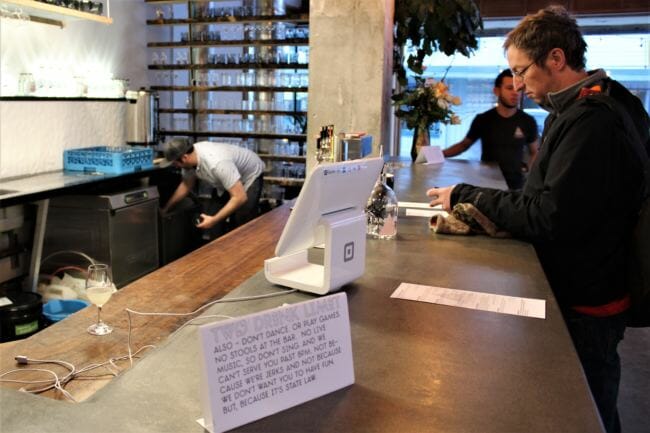
The House Community and Regional Affairs Committee met Saturday morning in the state Capitol to hear public testimony on House Bill 269.
The bill could settle a debate over whether distilleries can serve mixed cocktails in their tasting rooms.
Of the more than 30 people who spoke at the packed committee hearing, only three testified against the bill.
Two were members of the Alaska Cabaret, Hotel, Restaurant and Retailers Association, or CHARR, which advocates on behalf of bars.
CHARR CEO and President Pete Hanson said the organization supported distillery tasting rooms when they were first established.
“We applaud the authors of this legislation for recognizing that there are issues to be worked out with the tasting rooms at distilleries,” Hanson said. “We still support the concepts that we agreed to in 2014, when we supported that bill.”
Hanson was referring to House Bill 309, which allowed distilleries in Alaska to have tasting rooms where customers can sample products, but with limits.
They can’t have live entertainment or games and their hours of operation are restricted. They also can’t serve customers more than 3 ounces of their product a day.
One thing HB 309 did not address was whether non-alcoholic mixers could be used to make cocktails with a distillery’s product.
Rep. Chris Tuck said the new bill would clarify language from the 2014 law. The Anchorage Democrat sponsored both.
The mixed drink ambiguity led to the recent 3-1 Alaska Alcoholic Beverage Control Board decision to restrict distilleries from mixing cocktails.
Under the new regulation, they can separately provide customers with the alcohol and the mixer, but the customer must make the cocktail themselves.
That decision came despite an outpouring of public support for distillery tasting rooms in written testimony.
According to Tuck, the original law was intended to prevent distilleries from acting like bars. But he said it was never their intention to restrict cocktails.
“I mean do we want the AMCO board to be really regulating non-alcoholic drinks? Their role is alcoholic drinks,” Tuck said. “You can’t add water to Scotch. Do we really want people just taking straight shots of alcohol?”
The new regulation will take effect 30 days after being signed by Lt. Gov. Byron Mallott.
A few blocks away from the Capitol on Saturday afternoon, it’s business as usual at Amalga Distillery.
A customer perusing the menu and selected the hot cider, a drink mixed with their signature Juneauper gin.
Co-owner Brandon Howard said it has been hard to plan long term.
“We do like the current regulations,” Howard said. “The two-drink limit makes it so that we don’t have to deal with public inebriation, we don’t have to cut people off. People come in here for a good experience and it fosters a safe environment.”
At the hearing, Rep. Dan Saddler, Eagle River-R, asked whether allowing distilleries to use mixers will further blur the line between tasting rooms and bars.
“Was it your intent bringing this bill forward that there should not be any other further erosion in the distinction, such that your intent is that there should never be stools to sit down or extended hours or entertainment or anything else that would make a distillery that can also sell mixers into a bar?” Saddler said.
Tuck said that was correct, since they never intended for non-alcoholic mixers to come into question.
“Our intent was to allow the mixers and the AMCO Board seemed to have changed the last three years of tradition and so we’re just trying to set the record straight,” Tuck said.
Juneau resident Kimberly Metcalfe also testified against the proposed bill and said there should be restrictions on the number of new distillery licenses in the state.
“It’s putting established bars at a severe disadvantage when distilleries are selling a cheap product at happy hour prices, and happy hours are not allowed in this state,” Metcalfe said. “A tasting room should be just that; should be a place to taste the product as-is.”
Howard said the public support has been encouraging.
“The public preference is incredibly clear,” Howard said after the hearing. “It becomes a vote for the will of the people and what the public wants to see. I’m cautiously optimistic.”
The Community and Regional Affairs Committee will hold another hearing on HB 269 before voting on the bill.




